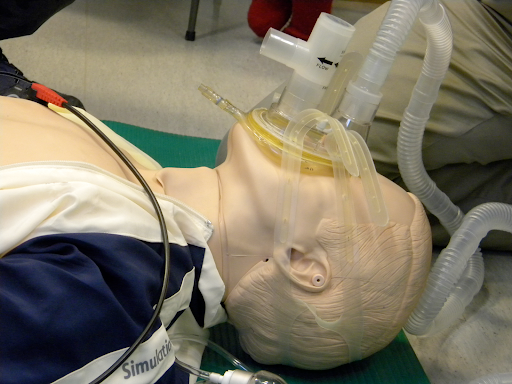Introduction
Plantar fasciitis is a common condition that affects thousands of people in Mount Pleasant, SC, and the broader Charleston area. This painful condition, characterized by heel and foot pain, can significantly impact a person’s daily activities and quality of life. For residents looking for effective treatment options, especially those who prefer non-invasive therapies, understanding what plantar fasciitis is and how it can be treated with advanced methods like low-intensity shockwave therapy is essential. Here, we’ll delve into the causes, symptoms, and treatment options for plantar fasciitis, emphasizing how Apollo Wave’s innovative approach can provide relief.
What is Plantar Fasciitis?
It is an irritation of the plantar sash, a thick band of tissue that runs along the lower part of the foot, interfacing with the impact point issue that remains to be worked out toes. This tissue helps support the arch of the foot and plays a vital role in walking and other activities. When the plantar fascia becomes overstressed or overstretched, micro-tears can develop, causing pain and inflammation.
Causes and Risk Factors
The exact cause of plantar fasciitis may vary from person to person, but common contributors include:
- Repetitive Stress: Activities that place a high level of stress on the feet, such as running, dancing, or standing for long periods, can increase the risk of developing plantar fasciitis.
- Foot Mechanics: People with high arches or flat feet can experience added strain on the plantar fascia, increasing the risk of injury.
- Age: While plantar fasciitis can affect people of all ages, it is most common in those between 40 and 60 years old.
- Obesity: Carrying excess weight puts extra pressure on the feet, contributing to the development of plantar fasciitis.
- Improper Footwear: Shoes that lack proper arch support or cushioning can exacerbate or even cause the condition.
Symptoms of Plantar Fasciitis
The primary symptom of plantar fasciitis is a sharp or stabbing pain that is most severe when taking the first steps in the morning or after long periods of inactivity. The pain may diminish as the foot “warms up” throughout the day, but it often returns after prolonged standing or intense activity. Other common symptoms include:
- Tenderness: Pain typically occurs at the bottom of the heel or along the arch.
- Swelling: Inflammation can cause mild swelling around the heel.
- Stiffness: The foot may feel stiff, especially in the morning or after sitting for an extended period.
Effective Treatments for Plantar Fasciitis
Treating plantar fasciitis can involve a combination of home remedies, physical therapy, and medical treatments. Some common treatment approaches include:
- Rest and Ice Therapy: Reducing physical activity and applying ice to the affected area can help decrease inflammation and alleviate pain.
- Stretching Exercises: Regular stretching of the calf and foot muscles can provide relief and promote healing.
- Orthotics: Custom arch supports, and special insoles can help distribute weight more evenly, reducing the strain on the plantar fascia.
- Anti-Inflammatory Medications: Over-the-counter medications, like ibuprofen or naproxen, can help manage pain and inflammation.
- Physical Therapy: Targeted exercises can improve flexibility, strengthen foot muscles, and reduce tension on the plantar fascia.
The Apollo Wave Advantage: Low-Intensity Shockwave Therapy
For those in Mount Pleasant and the greater Charleston area, Apollo Wave offers an innovative, non-invasive treatment for plantar fasciitis: low-intensity shockwave therapy. This treatment harnesses the power of sound waves to promote healing and reduce pain.
How Does Low-Intensity Shockwave Therapy Work? Low-intensity shockwave therapy uses acoustic waves to penetrate deep into the tissues of the foot. These waves stimulate cellular repair, increase blood circulation, and promote the healing of the plantar fascia. Unlike more invasive procedures, shockwave therapy does not require surgery or significant downtime. Patients can, for the most part, get back to their everyday exercises not long after treatment.
Benefits of Shockwave Therapy
- Effective Pain Reduction: Shockwave therapy targets pain at its source, leading to significant relief for many patients.
- Non-Invasive: Unlike surgery, this therapy does not require any cuts or stitches, making it safer and more convenient.
- Faster Recovery: With shockwave therapy, patients often experience quicker recovery times compared to traditional treatments.
- Long-Lasting Results: Many patients report sustained relief from pain and improved mobility for weeks or even months after treatment.
Why Choose Apollo Wave in Mount Pleasant?
Apollo Wave is proud to be at the forefront of pain management in Charleston and Mount Pleasant, SC, offering specialized treatment plans tailored to each patient’s needs. Our commitment to advanced, non-invasive solutions ensures that patients receive effective, long-lasting relief from conditions like plantar fasciitis without the need for surgery.
With our team of highly trained professionals and state-of-the-art technology, Apollo Wave is dedicated to providing the highest standard of care. Our approach prioritizes the comfort and safety of each patient, ensuring a seamless and positive experience throughout the treatment process.
Conclusion
Plantar fasciitis can be a frustrating and debilitating condition, but it doesn’t have to be a permanent part of your life. Whether you’re an athlete in Mount Pleasant, a busy professional, or simply someone who enjoys staying active, finding the right treatment is key. At Apollo Wave, we offer low-intensity shockwave therapy as a safe, effective, and innovative way to relieve the pain associated with plantar fasciitis. Contact us today to learn more about how we can help you regain your mobility and get back to living your best life.



